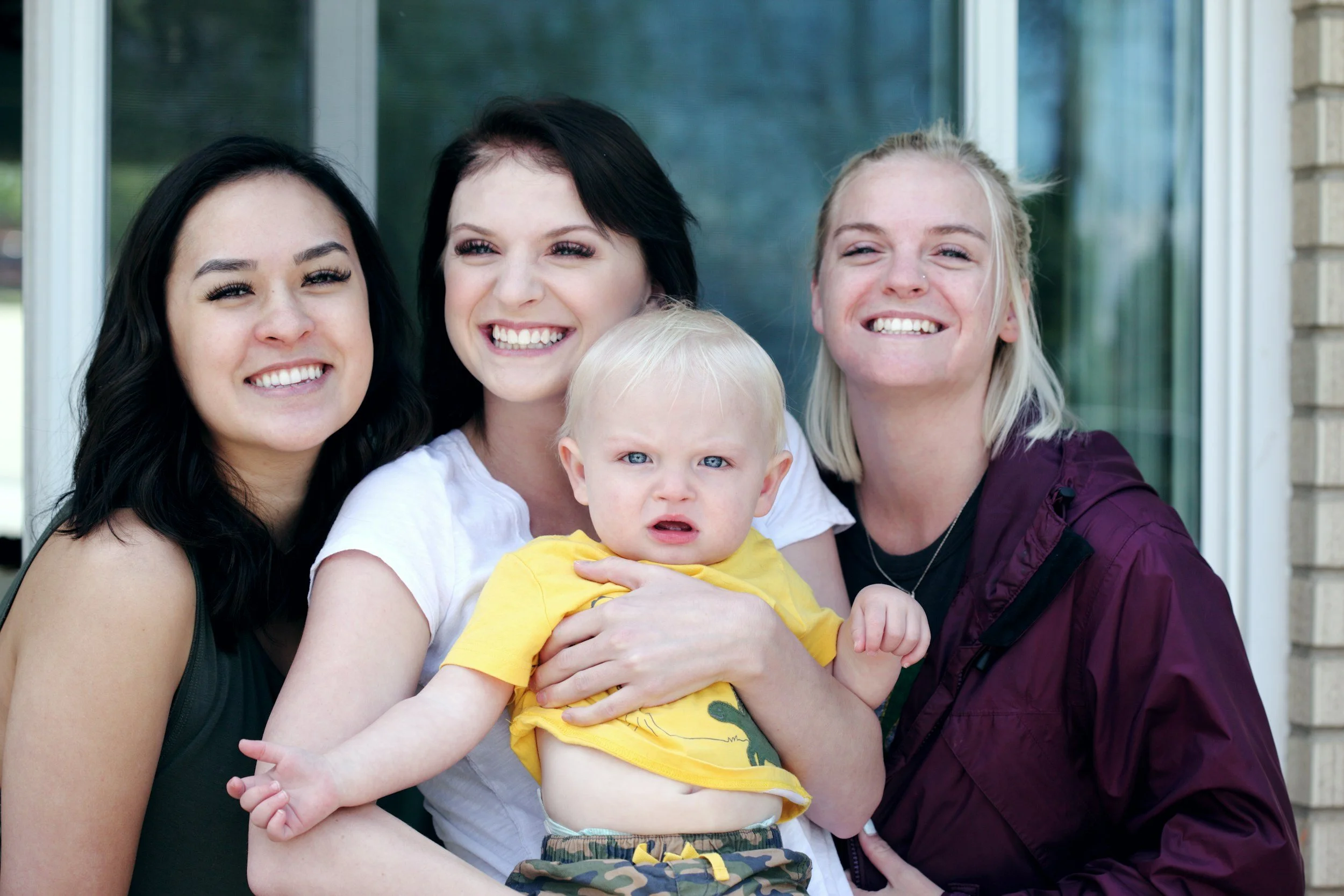What Therapy Actually Helps After A Hard Birth (Ontario Guide)
Had a hard birth and now feel anxious or not like yourself? Learn which therapy actually helps postpartum moms in Ontario — including EMDR and trauma-informed care.
I Had a Healthy Baby But I’m Not Okay. Now What?
You can love your baby and still not feel okay.
Postpartum anxiety and birth trauma don’t always look the way people expect — especially when everything seems “fine” on the outside.
If this resonates, you’re not alone. And support can help.
Drop It in the Group Chat: Why Sharing Support Saves Lives (and Stories)
Drop It in the Group Chat: Why Sharing Support Saves Lives (and Stories)
Why “Getting Your Body Back” Isn’t the Health Advice New Moms Think It Is
Becoming a parent is a physical, emotional, and hormonal upheaval. Your sleep is disrupted. Your identity shifts. You’re navigating recovery, mental load, new routines, and often very real anxiety. Layering weight-focused expectations on top of all of that isn’t neutral — it increases stress, disrupts eating patterns, and makes women feel like they’re failing at a job they never asked to have.
The Hidden Cost of Hustle Culture: How Moms’ Nervous Systems Are Paying the Price
Why Our Calm Matters for Our Kids
Dr. Mona Delahooke teaches that children rely on our regulated nervous system — not our perfect parenting — to feel safe.
And Dr. Laura Markham reminds us:
“Kids don’t want a perfect parent.
They want a present one.”
When we are overwhelmed, co-regulation becomes harder — not because we don’t care, but because our biological capacity is depleted.
A dysregulated parent cannot co-regulate a child.
We are not robots — we are mammals.
And mammals require connection, safety, and support to thrive.
Rethinking the “Elf on the Shelf”: From Pressure to Presence
Looking for a gentler, less overwhelming way to create holiday magic this year?
Download my free 24-Day Kindness Elf Guide — a simple, heart-centred tool designed for busy, overwhelmed moms who want more connection and less pressure.
Inside the guide, you’ll find 24 printable elf cards with small, meaningful prompts that support kindness, creativity, and mindful family moments. Use them all or choose a few; there’s no schedule to follow and absolutely no guilt if you skip a day.
This is holiday magic on your terms — grounded, doable, and centred on what matters most: presence, not perfection.
NICU Trauma and the Unseen Grief Parents Carry: What No One Talks About After Discharge
NICU stays often lead to guilt, fear, and lingering medical trauma. Discover why these experiences matter, how they affect postpartum mental health, and how trauma-informed therapy supports NICU parents in their healing.
ADHD in Women & Moms: Recognizing Symptoms and Getting a Diagnosis
ADHD in Women & Moms: Recognizing Symptoms and Getting a Diagnosis
Why ADHD is missed, what it really looks like, and how to get support
Many women and mothers live for years feeling overwhelmed, scattered, disorganized, or “not enough” without realizing ADHD may be part of the picture. Because research historically focused on hyperactive boys, the experiences of girls, women, and mothers were overlooked. Today we recognize that ADHD does not have one “look,” and that many women struggle with symptoms that have been misunderstood or misdiagnosed.
EMDR for Birth Trauma | Trauma-Informed Therapy Ontario
Learn how EMDR helps process birth trauma, calm the body, and restore emotional balance. Discover what to expect, group options, and how to find a certified EMDR therapist in Ontario.
Tender and Fierce Self-Compassion: Caring for Yourself and Harnessing Your Kindness
Motherhood, pregnancy, and postpartum life are some of the most transformative and demanding seasons of life. With identity shifts, lifestyle changes, hormonal surges, and the responsibility of caring for a vulnerable new life, it’s no wonder that so many new mothers find themselves swimming in self-doubt, comparison, or exhaustion.
In these moments, self-compassion can be a powerful anchor. But self-compassion is not just softness and self-soothing. It also has a strong, protective energy, a sort of “mama bear” force, that can help you set boundaries, advocate for yourself, and build resilience
What is Self-Compassion?
"The Journey Into Parenthood Begins Here" – Why Preparing Your Mind Matters More Than Packing Your Hospital Bag
Doula Duo Babymoon Retreat at Fern Resort (Ontario, Canada)
November 28–30, 2025
Looking for the perfect Ontario babymoon getaway before your baby arrives? The Doula Duo Babymoon Retreat is a 2-night, all-inclusive prenatal retreat designed for expectant couples seeking rest, connection, and expert support. Held at the beautiful Fern Resort in Orillia, just 90 minutes north of Toronto, this pregnancy-friendly weekend includes comfortable lakeside accommodations, nourishing meals, and calming activities to help you relax and recharge.
Led by perinatal mental health expert Amber Sperling (MSW, RSW, PMH-C, EMDR Certified), the retreat features a 90-minute workshop titled The Journey Into Parenthood Begins Here, guiding couples through value-based communication, boundary setting, and emotional preparation for postpartum life. You'll also enjoy access to yoga, nature, fireside chats, and evidence-informed conversations about infant sleep, relationships, and navigating the transition to parenthood.
Perfect for first-time parents or growing families, this babymoon retreat supports your mental, emotional, and relational wellbeing—so you can feel grounded and connected before your baby arrives.
Limited spaces available. Book your Ontario babymoon today!

















